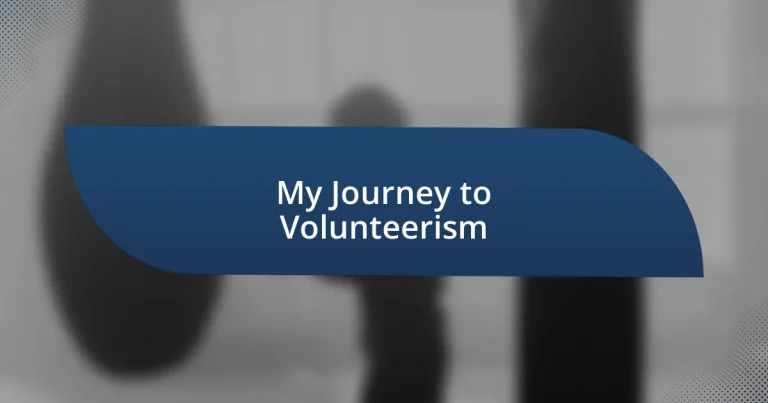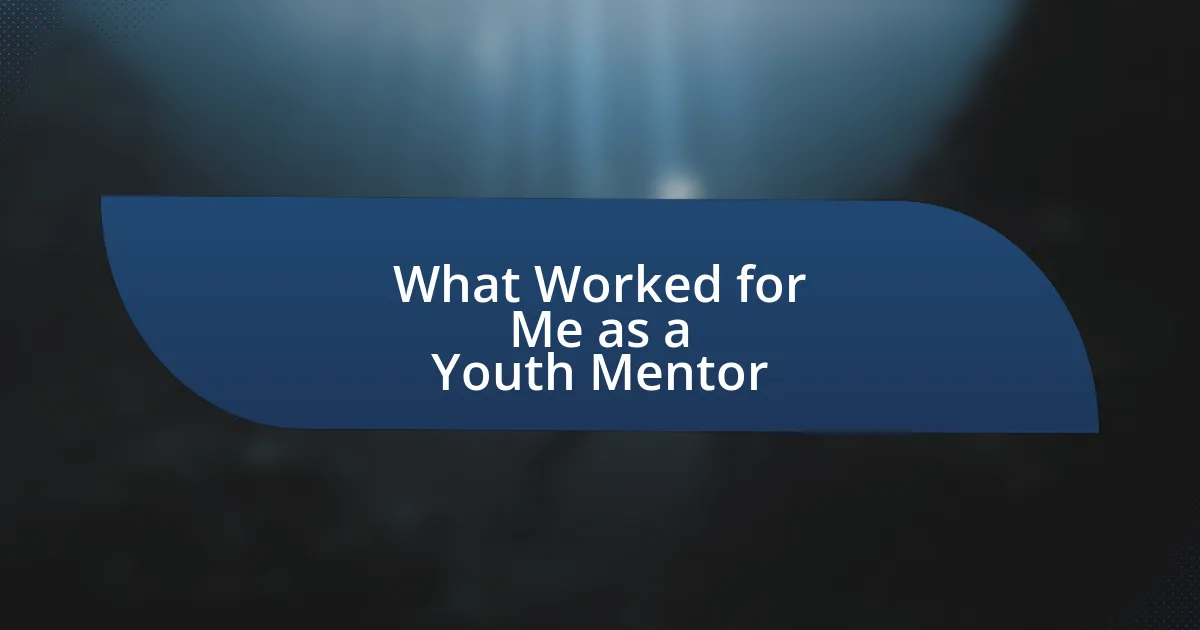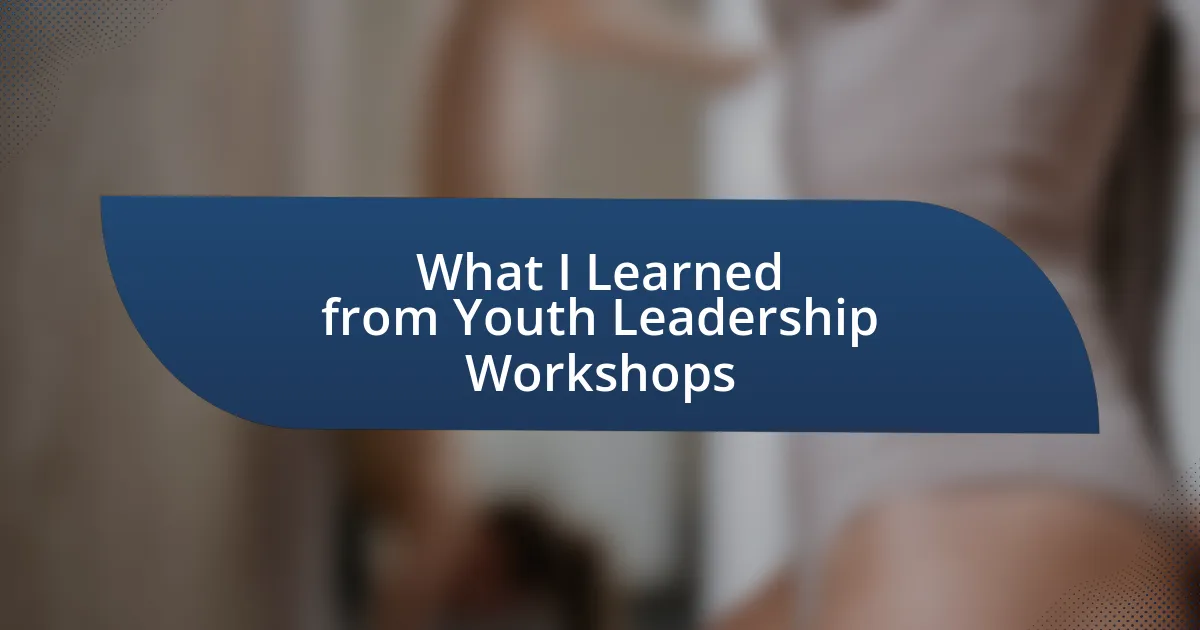Key takeaways:
- Volunteerism creates deep human connections and fosters personal growth through shared experiences and challenges.
- Identifying motivations for volunteering often reveals personal passions and leads to emotional healing.
- Volunteering develops crucial skills such as leadership, communication, problem-solving, and empathy, benefiting both personal life and career.
- Overcoming challenges in volunteering, such as time constraints and emotional struggles, strengthens resolve and fosters innovative solutions.
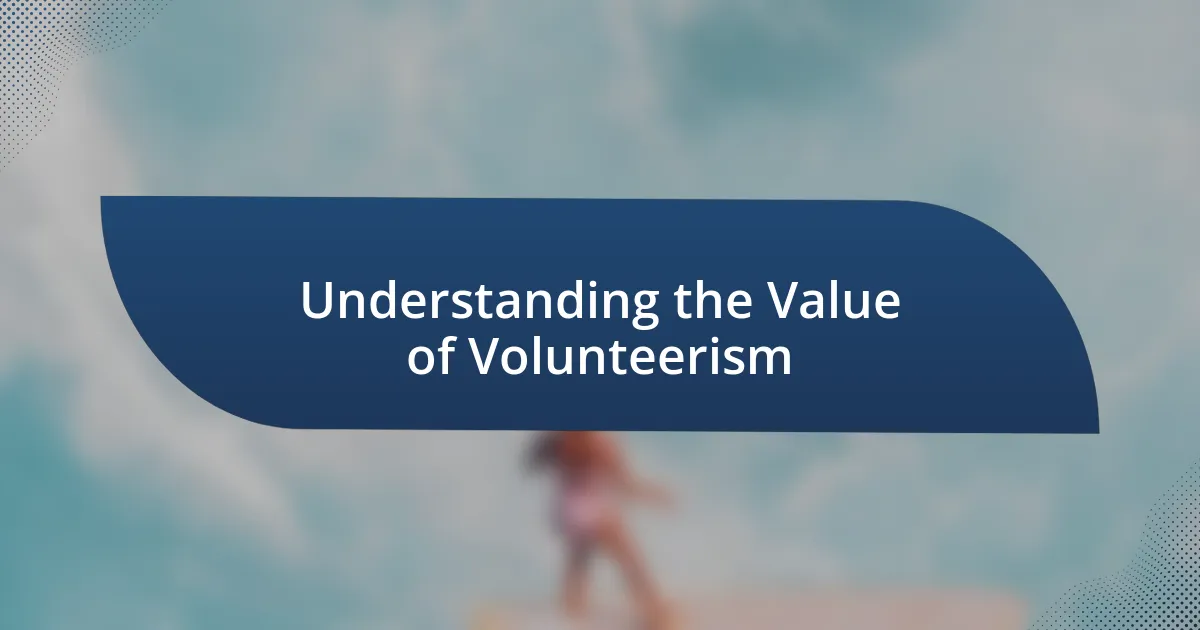
Understanding the Value of Volunteerism
Volunteerism holds a profound value that extends far beyond simply lending a helping hand. I remember my first volunteering experience at a local shelter, where I saw firsthand the impact of community support. It made me wonder, how often do we underestimate our ability to create positive change?
Engaging in volunteer work enriches not only the lives of those we help but also our own. I often reflect on the friendships I formed during my time at that shelter; they became a lifeline of support as we navigated challenges together. Isn’t it amazing how giving our time can lead to such deep human connections?
The emotional rewards of volunteering often come as a surprise. I was initially driven by a desire to help, but I discovered a sense of purpose and fulfillment I never anticipated. Have you ever considered how helping others might also help you find your own path?
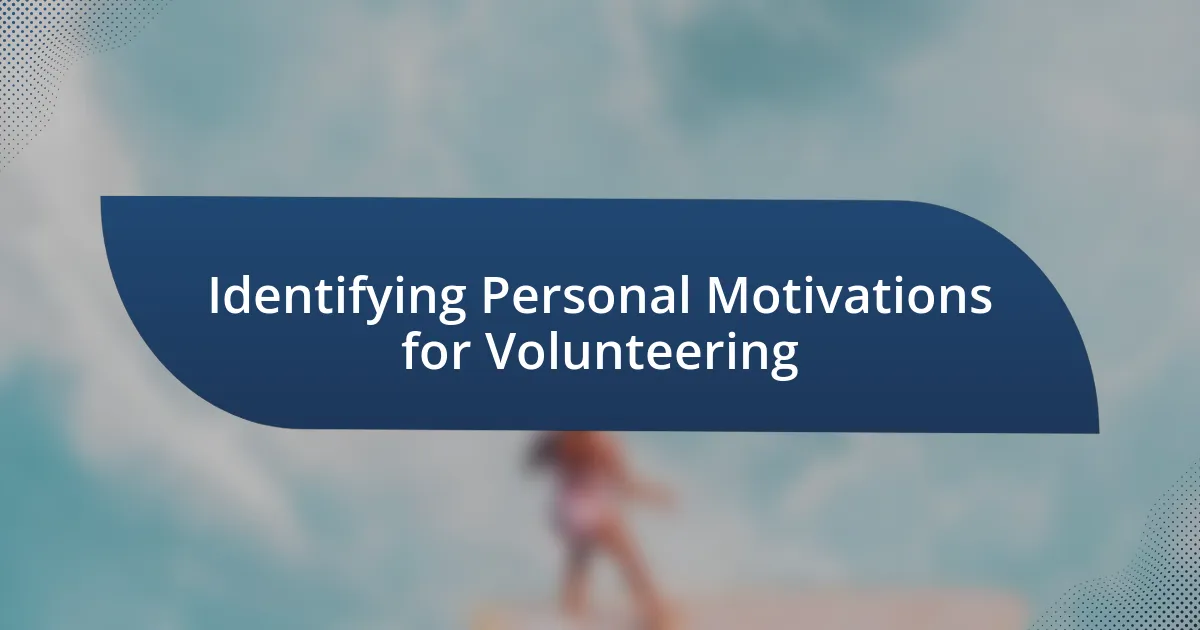
Identifying Personal Motivations for Volunteering
Identifying Personal Motivations for Volunteering
Reflecting on my reasons for volunteering has always been enlightening. Initially, I thought I was simply offering my time to others. However, I soon realized my motivations ran deeper. Helping others filled a void I didn’t know I had. It turns out, serving my community helped me uncover passions I didn’t even recognize in myself.
Another aspect to consider is the desire for personal growth. When I volunteered for a community gardening project, I was amazed at how much I learned about teamwork and patience. It was a challenge to coordinate with others, but each moment taught me invaluable skills. Have you ever thought about how skills acquired through volunteer work could translate into personal and professional development?
A powerful motivation often stems from a personal connection to a cause. For instance, after witnessing a family member struggle with mental health issues, I began volunteering for a local mental health organization. This experience not only allowed me to give back but also brought healing to my own experiences. It’s fascinating to see how our personal narratives shape our desire to make a difference.
| Motivation Type | Description |
|---|---|
| Desire to Help | Volunteering to support those in need, often leading to personal fulfillment. |
| Personal Growth | Developing skills and knowledge through collaborative efforts and challenges faced during volunteer activities. |
| Personal Connection | Engaging in causes that resonate with personal experiences or struggles. |
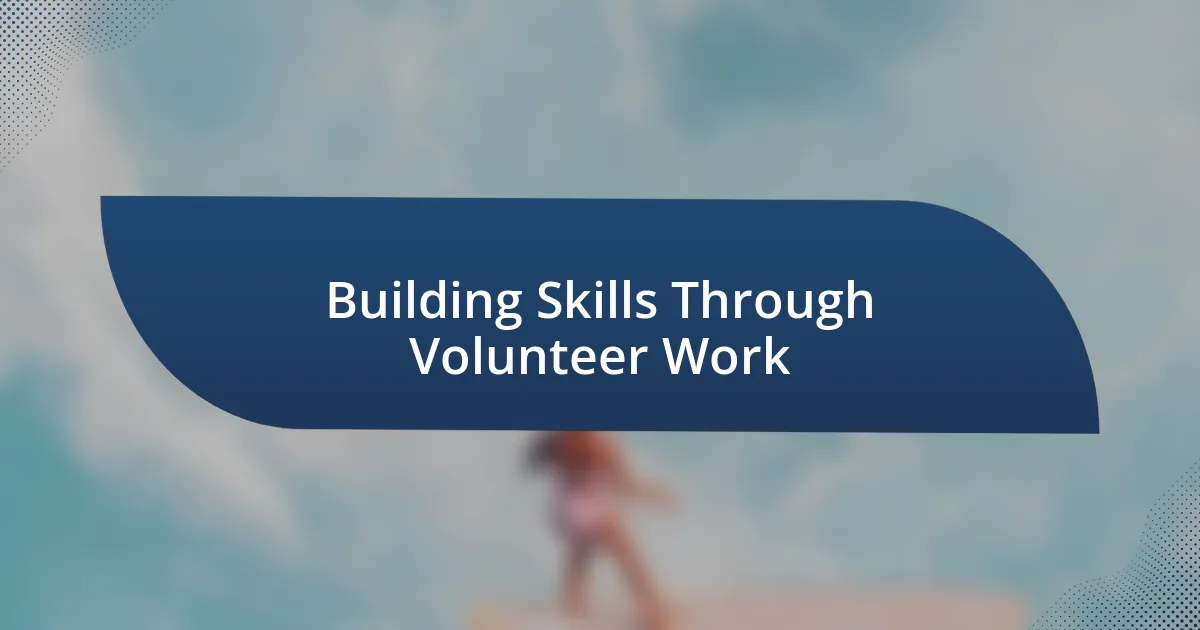
Building Skills Through Volunteer Work
Building skills through volunteer work has been one of the most rewarding aspects of my journey. Each opportunity I took on became a unique learning experience. For example, managing a fundraiser required me to hone my organizational and communication skills. I vividly remember feeling overwhelmed at first, but the satisfaction of seeing the project succeed filled me with confidence. It highlighted how stepping outside my comfort zone could lead to personal and professional growth.
Here are some key skills that I developed through various volunteer roles:
- Leadership: Coordinating teams and guiding new volunteers has improved my ability to inspire confidence in others.
- Communication: Interacting with diverse groups taught me how to convey ideas clearly and listen actively.
- Problem-Solving: Challenges arose often, but they sharpened my critical thinking and creativity in finding solutions.
- Empathy: Engaging with communities in need fostered a deeper understanding of different perspectives and experiences.
- Time Management: Balancing volunteer commitments with work responsibilities helped me prioritize my tasks more effectively.
Each of these skills not only enhanced my volunteer experience but also translated well into my everyday life and career.
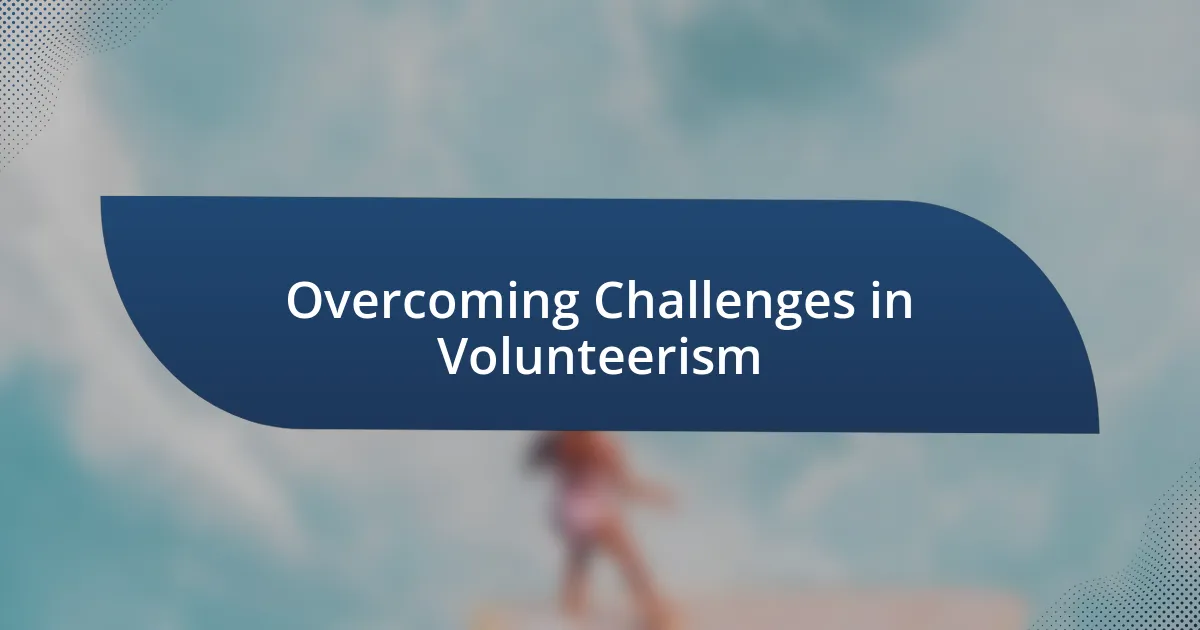
Overcoming Challenges in Volunteerism
Volunteering often comes with unexpected hurdles that can test your resolve. I remember one project where we faced an unexpected budget cut just a week before a major community event. The initial panic was palpable, but it sparked a flurry of creative brainstorming sessions. Facing that challenge together not only strengthened our team dynamic but also ignited a sense of innovation I hadn’t anticipated.
Time constraints can also be a significant challenge. I’ve often found myself juggling volunteer responsibilities with a packed work schedule, leading to moments of doubt. Yet, these moments taught me that effective planning can turn chaos into order. I learned to embrace time management strategies, which transformed my approach to both volunteering and my personal life.
Lastly, emotional challenges frequently arise, especially when you witness the plight of those you aim to help. There have been days when the stories of those struggling have weighed heavily on my heart. But rather than shying away from these feelings, I’ve learned to channel them into my work, reminding myself that every small effort matters. How do you cope with emotional challenges in such situations? For me, it’s all about remembering the impact we can make, even if it seems small at the time.
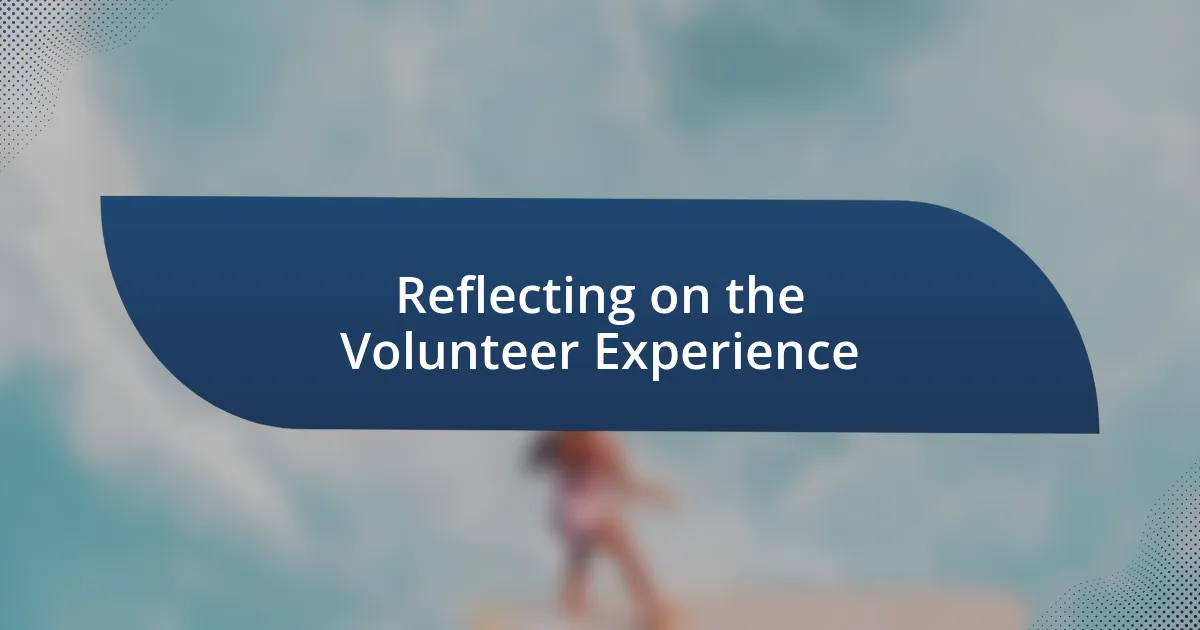
Reflecting on the Volunteer Experience
Reflecting on my volunteer experiences has always been a deeply personal journey. I recall one particular instance when I helped organize a community clean-up. Seeing the immediate impact of our work—litter transformed into a vibrant park—filled me with a sense of purpose. It made me ponder how even small actions can create ripples of change in our environment.
The emotions tied to volunteering are as varied as the experiences themselves. I remember sitting with a group of children in a tutoring program, feeling their excitement as they solved problems for the first time. It hit me then that my presence made a difference, imbuing me with a profound sense of connection and responsibility. Have you ever felt that overwhelming joy when you realize you’re part of something greater? For me, those moments are reminders of why I choose to volunteer.
There are times when I’ve left a volunteer shift feeling exhausted yet fulfilled, often reflecting on what I learned about myself during the process. Each interaction, whether challenging or uplifting, has taught me something about resilience and empathy. I find myself asking: What did I take from this experience? And it always comes back to the idea that with each act of service, not only do we support others, but we also grow immeasurably ourselves.
